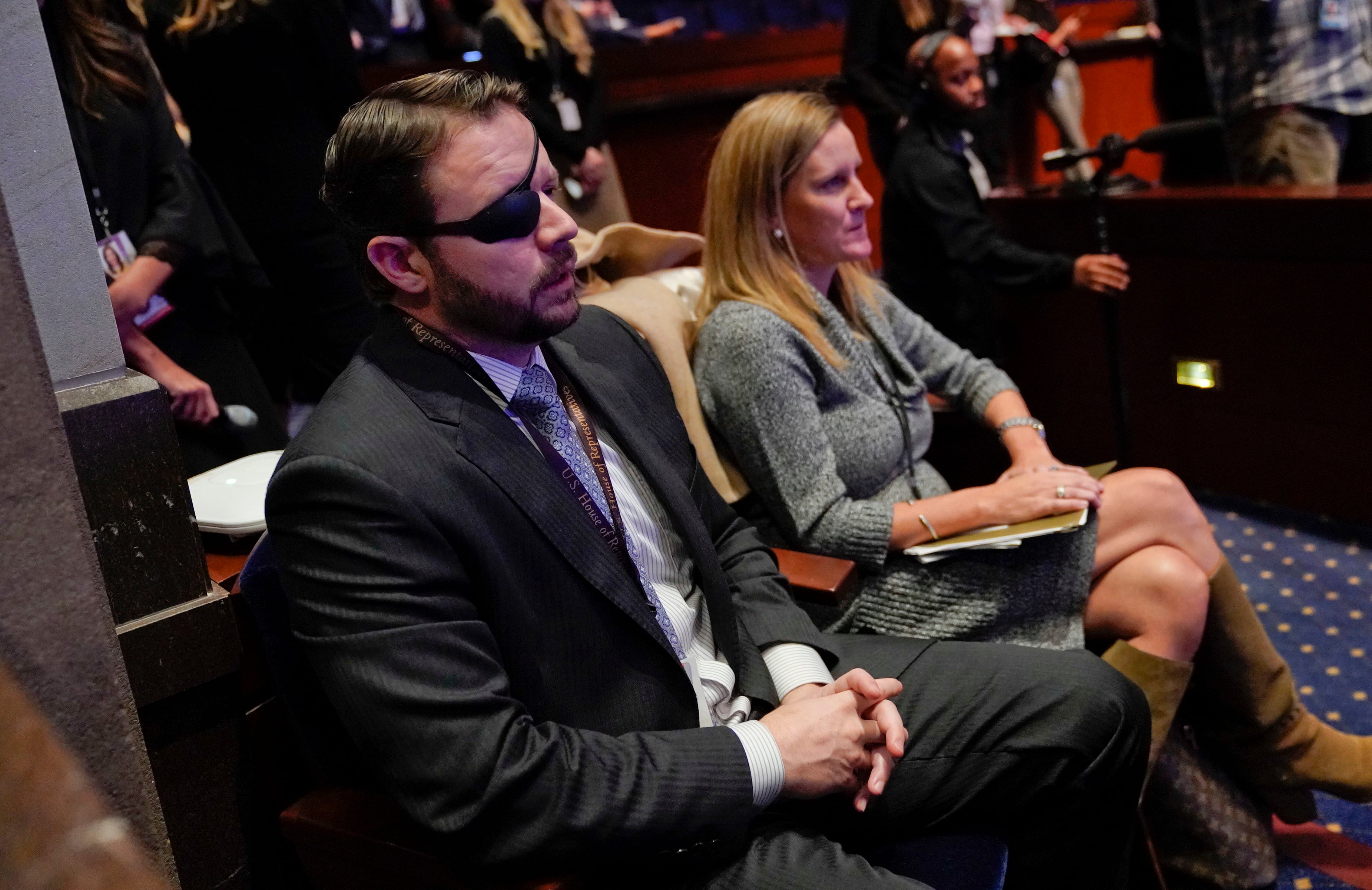WASHINGTON — Fewer than 2 percent of congressional staffers have served in the military, despite years of warning from advocates about the need to include veterans’ perspective in policy work and pledges from lawmakers to help separating service members find work.
According to figures released this week by HillVets — a bipartisan networking group of Capitol Hill staffers with military experience — only about 200 of the 13,000-plus congressional staff have military backgrounds. That equates to about 1.6 percent of the Capitol Hill workforce, not including elected officials.
“There’s a fundamental lack of knowledge in Congress in regards to what these benefits mean and what it’s like to serve in the military,” said Justin Brown, founder of the group. “We don’t have that brain trust available.”
RELATED

The number of veterans elected to Congress this session dropped to under 100, the lowest level since before World War II. But that still equates to about 18 percent of legislators being veterans, far above the staffer levels.
In the executive branch, about 31 percent of federal employees are veterans. The Defense Department (48 percent) and Department of Veterans Affairs (33 percent) have among the highest veteran employment rates of any agency, while Health and Human Services (8 percent) and the Environmental Protection Agency (9 percent) are among the lowest.
Even those rates far outpace the congressional representation. House and Senate Republicans did slightly better than their Democratic counterparts in hiring staffers with military experience, but still did not break the 2 percent employment mark.
The latest HillVets figure is actually lower than past estimates of veterans employed on Capitol Hill, but Brown said the total number of veterans staffers has basically stayed flat for the last five years.
“As it is now, we have staff writing policy for veterans who have never set foot in a VA hospital,” said Brown, a Navy veteran who previously worked on the House Veterans’ Affairs Committee. “We’re not suggesting that Capitol Hill should have upwards of 50 percent like the Defense Department. But the numbers should be higher than this.”
While many Hill offices don’t employ even one veteran, Brown said his group has seen success stories with individual offices.
For example, Sen. Mike Rounds, R-S.D., has five working on his staff. He said their perspective is invaluable.
“As a member of both the Senate Armed Services Committee and the Veterans’ Affairs Committee, being able to consult with them about their experiences and seek their advice helps me to make well-informed decisions,” he said in a statement.
“The veterans in my office have served the country in our armed forces, and working in a Senate office is an extension of that service.”
HillVets has been pushing for more veterans hiring for the past five years, especially in congressional policy posts. The group has been sharing a list of more than 40 prospective staffers from its network of veterans along with the latest research findings, in an effort to help fix the problem.
“There are veterans out there and they want to serve,” Brown said. “But we’ve never seen a collective effort to really take on the issue. It’s going to take work to fix it.”
Leo covers Congress, Veterans Affairs and the White House for Military Times. He has covered Washington, D.C. since 2004, focusing on military personnel and veterans policies. His work has earned numerous honors, including a 2009 Polk award, a 2010 National Headliner Award, the IAVA Leadership in Journalism award and the VFW News Media award.





